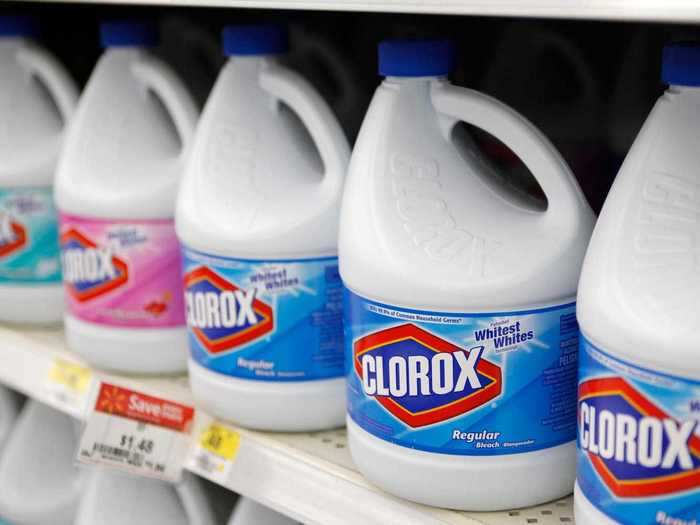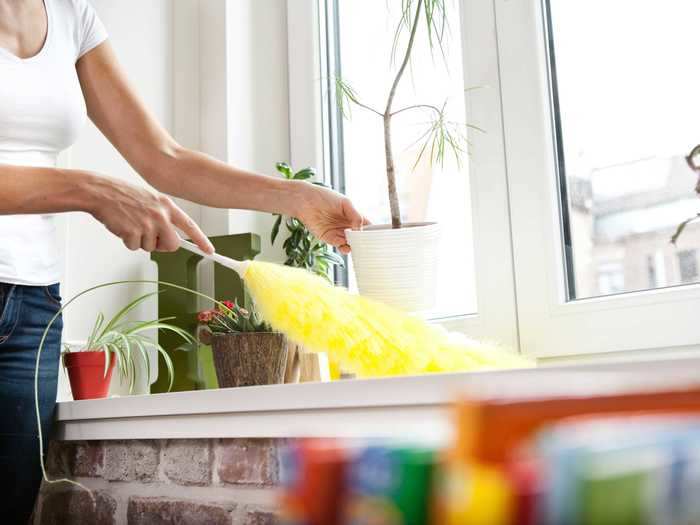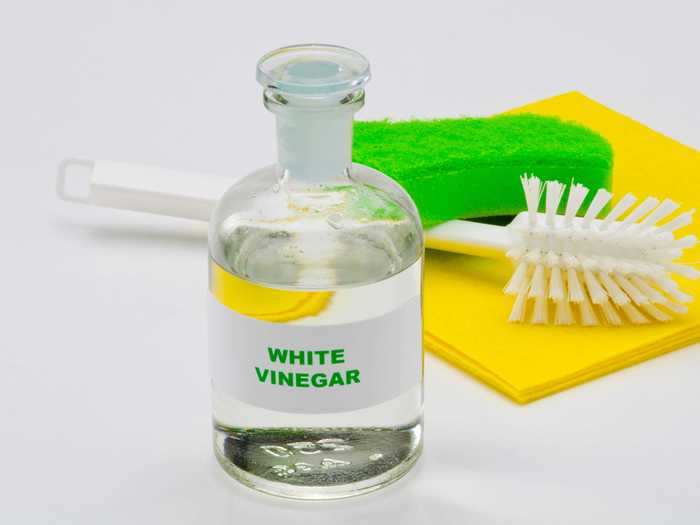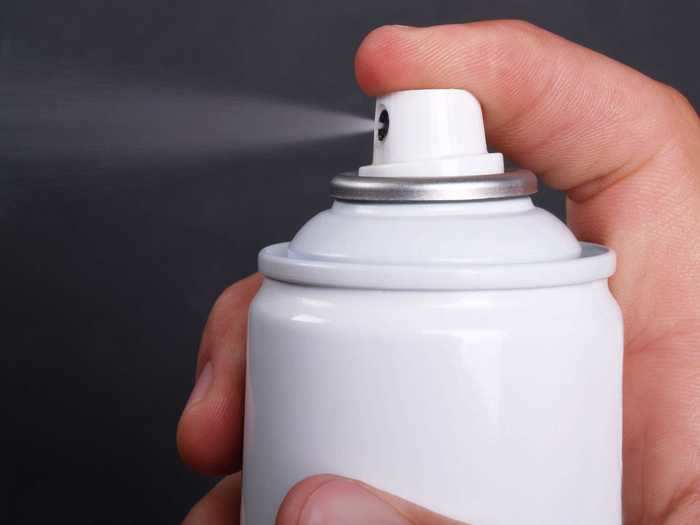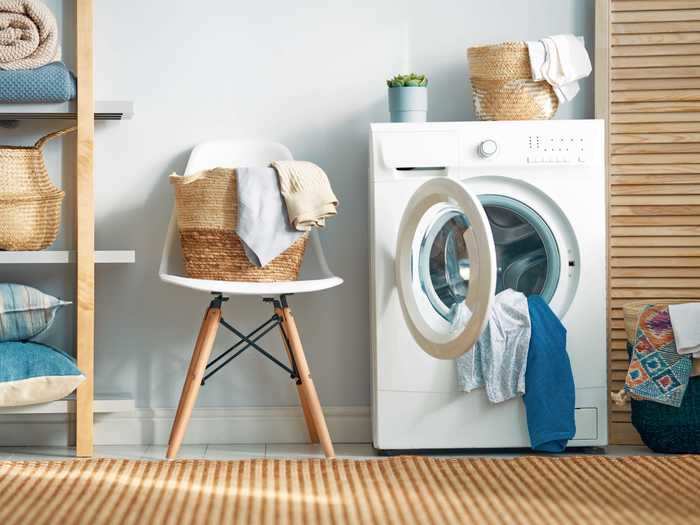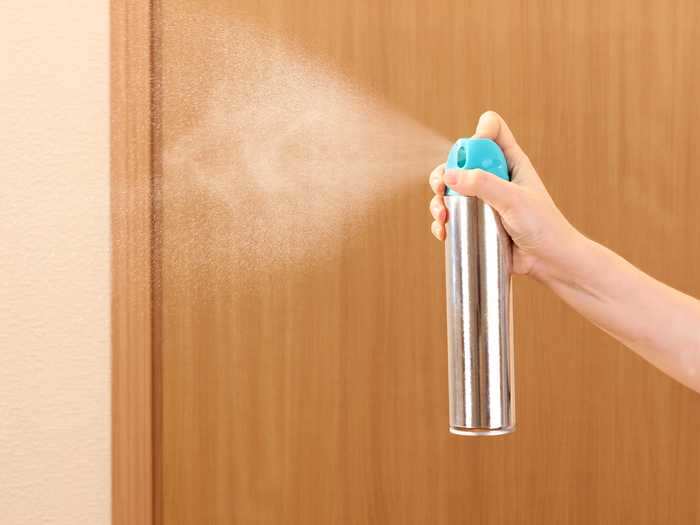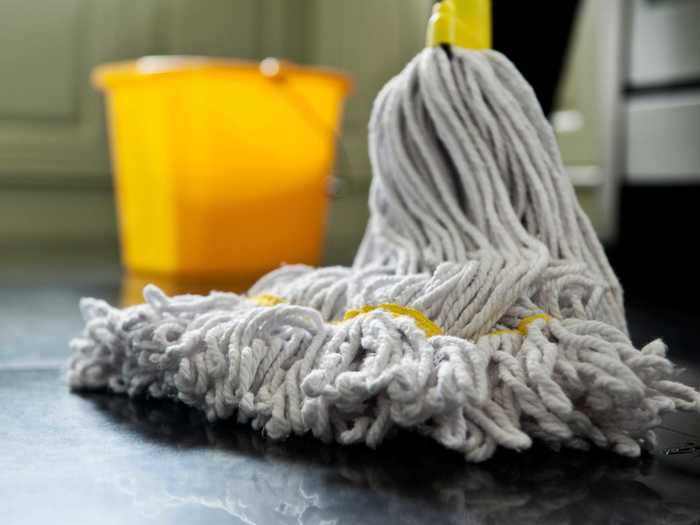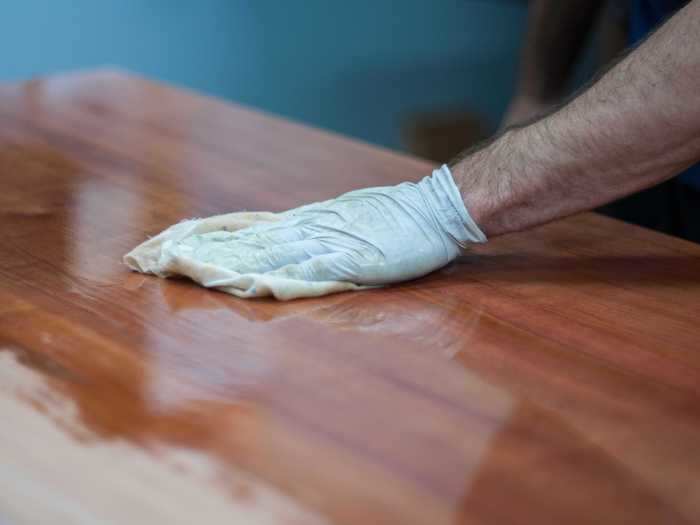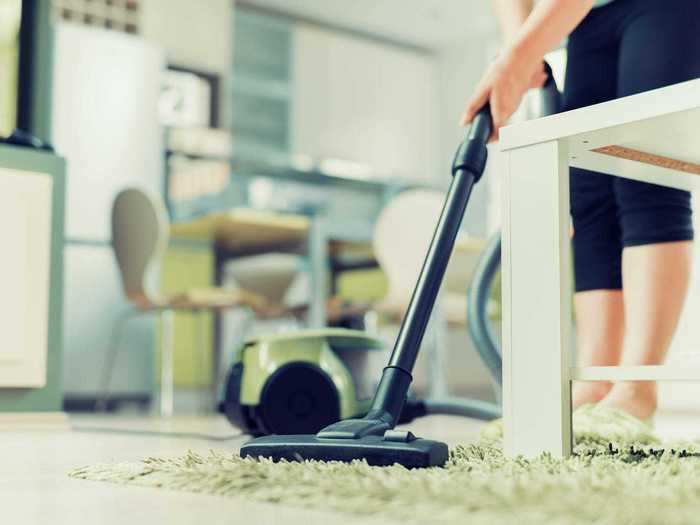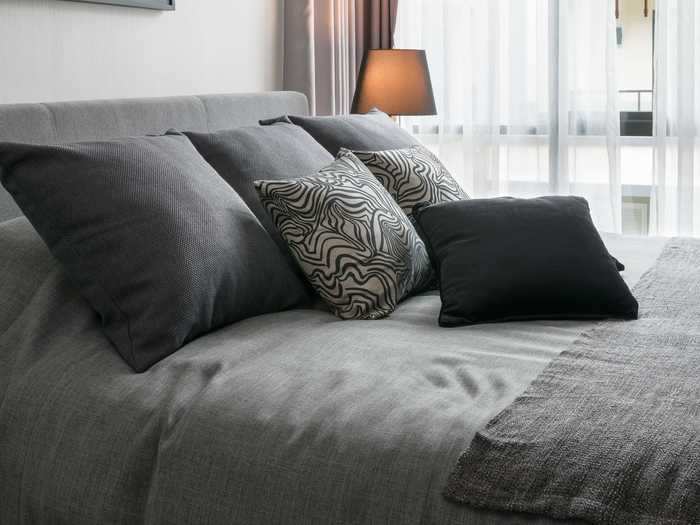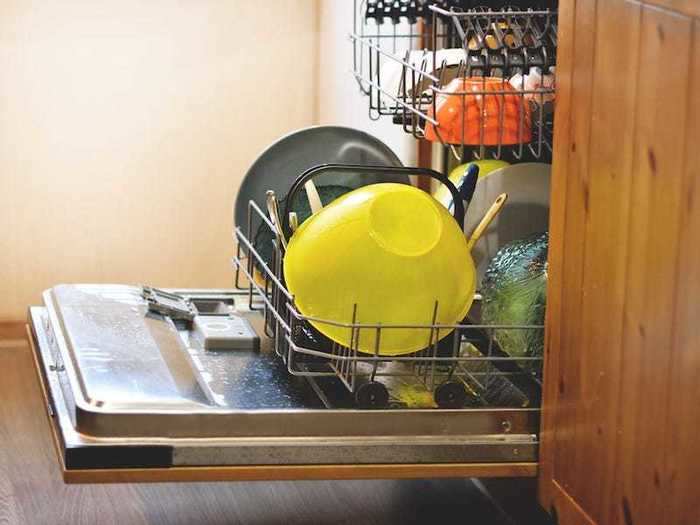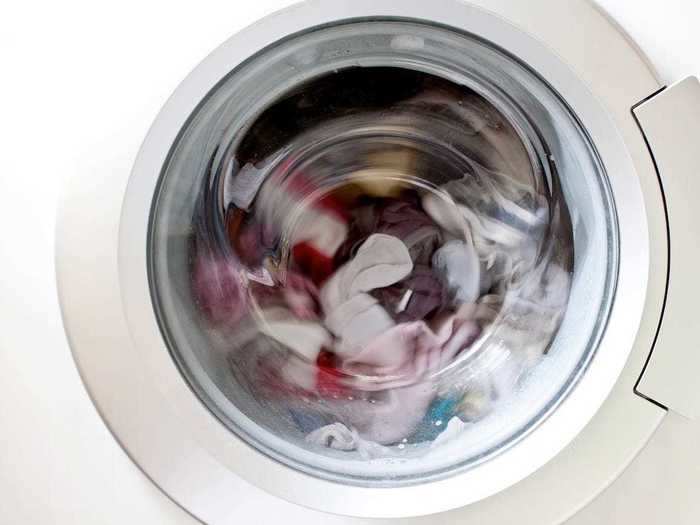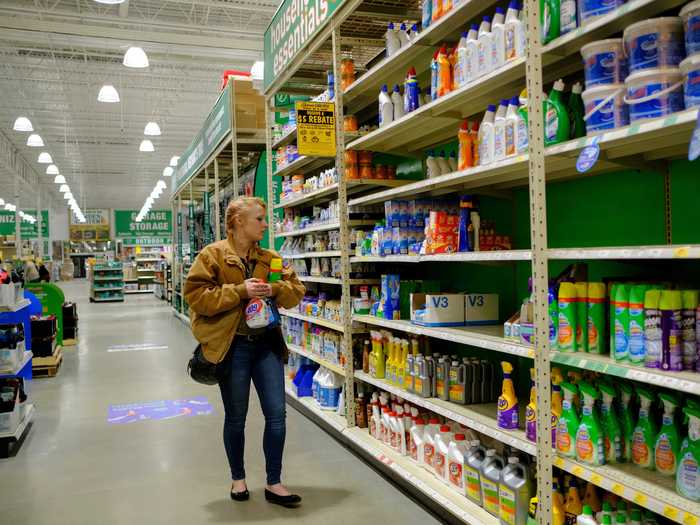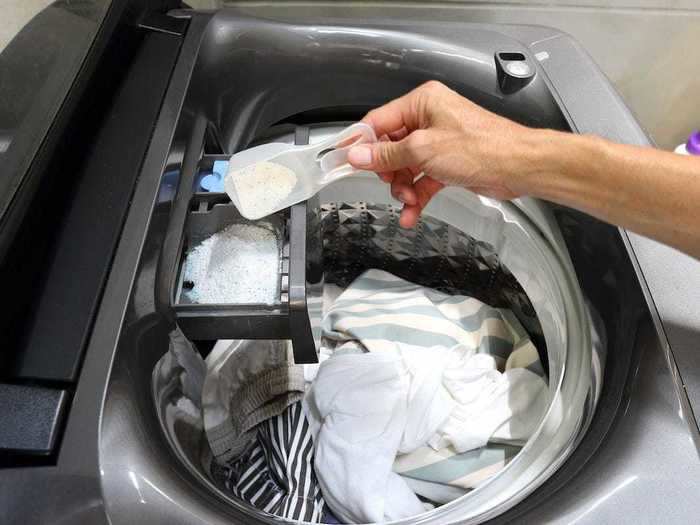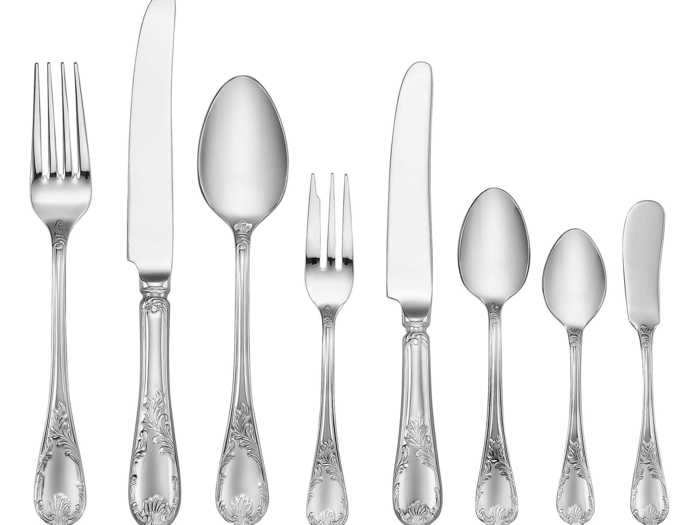Should you clean your home with a feather duster?Getty Images
- Carolyn Forté of the Good Housekeeping Institute helped Insider bust cleaning myths.
- Some "all-purpose" cleaners, like bleach and vinegar, should only be used to clean certain surfaces.
- Though they may have washer in their names, dishwashers and washing machines actually need to be cleaned themselves.
It takes a lot of effort to keep a home tidy, so there's nothing worse than doing more harm than good while cleaning.
To help debunk some cleaning myths, Insider consulted Carolyn Forté, a certified consumer science expert and the director of the Home Care & Cleaning Products Lab and the Textiles, Paper and Plastics Lab at the Good Housekeeping Institute.
Some of these cleaning myths have come from the past, when cleaning supplies were less advanced than they are today.
"Cleaning myths have a way of perpetuating themselves, especially with today's social media platforms," Forté said. "Personally, I don't think myths will ever go away. People love the idea of myths and believing or debunking them, maybe even more so today. Consumers also have their own little cleaning tips that they love to pass along and love to hear tips from others."
Take a look at myths that may be leading you to clean your home the wrong way.
Read the original article on
Insider
"Bleach cleans absolutely everything."
Though it is a useful tool for getting out tough stains and making whites whiter, bleach shouldn't be your go-to for all surfaces.
"Bleach is a great stain remover and disinfectant, but not a great grease cutter, so on its own, it's great for laundry stains and bathroom mildew and disinfecting surfaces," Forté said. "But for cleaning greasy stovetops, counters and other all-purpose cleaner uses, it needs to be part of a formula with other cleaning ingredients."
If you need to get dirt and grime out, the best thing to reach for is something with a gritty texture, like baking soda, which serves to loosen up dirt particles.
"Feather dusters remove dust."
A feather duster.
Getty Images
"Feather dusters just spread dust around and really don't hold onto it," Forté said. "Microfiber and lambswool dusters actually do pick up and hold onto dust. And most are washable and reusable."
Another way to remove dust is to use a wet cloth or vacuum.
"Newspapers give glass a streak-free shine."
Newspapers.
Billion Photos/Shutterstock
This is one of those cleaning myths that has changed over time. Though it used to be true that newspapers could give a streak-free shine, the modern paper is much thinner than it used to be, meaning it disintegrates far quicker.
"I have never found it to work and have found that wet newsprint actually makes more of a mess on your hands and the window frames," Forté said.
You're much better off using a microfiber cloth.
"Vinegar is an all-purpose cleaner."
White vinegar.
Getty Images
Like bleach, vinegar shouldn't be used to clean everything.
"Vinegar is a good grease cutter and limescale remover, so it's great for removing hard water stains on fixtures, cleaning windows, and coffeemakers," Forté said.
But you should avoid using it on certain surfaces.
"There are some things, like granite countertops and wood floors, that can be damaged by acidic vinegar," she said.
"Hairspray can be used to remove ink stains."
Hairspray.
Getty Images
This is another trick that used to be true, but isn't anymore. This is because hairsprays used to be loaded with alcohol, which cut through the ink and helped lift it off the clothing. However, hairsprays today contain less alcohol or are alcohol-free, as it dries hair out.
In addition, "hairspray itself can leave residue and stiffen fabrics, so we recommend using plain rubbing alcohol on ballpoint ink stains," Forté said.
"You should wash everything on cold."
Washing machine.
Getty Images
It's hard to know which items to wash on hot, since hot water can sometimes shrink or damage certain pieces of clothing, or cause their colors to fade. It seems simpler to just use cold water, but you're actually letting some items stay dirty that way.
"Cold water washing is great for saving energy and preserving colors, and more detergents are being formulated to work better in cold water, but some stains (like grease) need warm or hot water to be removed and certainly hot water does a better job at killing germs, so sheets and towels are usually best washed in warm or hot," Forté said.
"Air freshener helps clean the air."
Air freshener.
Getty Images
Though it may smell fresh after you spray your room, you're really only perfuming it rather than making it cleaner.
"Most air fresheners just cover up odors with a scent. After the scent fades, the malodor can return," Forté said.
A much better, and more natural method to cleaning the air in your home is to buy an air-purifying plant, like gardenias or African violets.
"String mops are the way to go."
Mop and bucket.
Getty Images
String mops have been around for centuries and are good for absorbing big spills, but they're not right for everyone.
"Old cotton string mops can be messy and dirty to use and difficult to wring, however, some of the newer string mops and wringing buckets make it easier," Forté said. "And synthetic string mops retain less water, and many have removable heads that can be washed in the washing machine. Mop style is really a matter of preference. There's no one right mop for everyone."
One study found microfiber mops were about 20 per cent more effective in microbial removal.
"You should polish wood often."
Polishing wood.
Getty Images
Though it might look nice after a good polish, it can actually do wood more harm than good to clean it too often. Some polishes can actually dull wood finishes and attract dust, while others can build up over time and darken wood.
"Polishing wood really protects the finish, not the wood. Polish it regularly to protect it from sun, heat and other damage, but there's no need to overdo it," Forté said.
Make sure you use polish sparingly, and keep your wood generally clean with microfiber cloth dusting.
"Vacuum, then dust."
Though older vacuum models used to shake up a lot of dust, meaning you'd need to dust off surfaces afterwards, today's vacuum model's don't have the same effect.
"Dust first, then vacuum," Forté said. "This way you pick up any dust that falls to the floor after dusting. Just make sure to use a good vacuum that doesn't spew debris back in the room."
"You can wash your sheets every two weeks."
Bed sheets.
Shutterstock
It's best to give sheets a weekly clean. Many people sweat while they sleep, contributing to skin and oil on sheets.
"The longest you should wait before changing out your sheets is two weeks. Weekly is even better. The hotter the water, the more germs you kill," Forté said.
"Your dishwasher cleans itself."
Dishwasher.
Lollga/Shutterstock
Though it may seem like you don't need to clean a dishwasher, it's actually very important that you do to get the most out of it.
"Dishwashers retain food bits, hard water minerals and the inside can get stained with grease or limescale," Forté said. "They should be cleaned monthly with a commercial dishwasher cleaner, like Cascade."
"Your washing machine cleans itself."
A washing machine.
Shutterstock
Like the dishwasher, the washing machine isn't a self-cleaner. It can actually be a breeding ground for salmonella, so best to make sure you're properly cleaning it.
"[The washing machine], like the dishwasher, needs cleaning, especially when washing in cold water only. Most washing machines even have 'clean' cycles on the control panels for that very purpose," Forté said.
"All green cleaning products are safe to use."
Cleaning supplies.
Barcroft Media / Contributor / Getty Images
According to Maid Sailors, a top-rated New York City maid service, just because a product has a green label doesn't necessarily mean that it is safer to use than other products. For example, a product can be labeled green simply because it uses less water to produce than other similar cleaners. It's important to read labels before using any cleaning products.
"Using more laundry detergent is always better."
Laundry detergent.
Saroj Khuendee/Shutterstock
Though many believe that more is better when it comes to laundry detergent, it can actually do more harm than good. According to Maid Sailors, "When an excessive amount of detergent is used, it can leave soap residue on clothes that needs to be washed off."
"You should never put silver cutlery in the dishwasher."
Silver cutlery.
Alphacat/Getty Images
According to Martha Stewart, "While washing silver by hand is definitely gentler than throwing them in the dishwasher, there's no problem with putting it in the machine, either."

